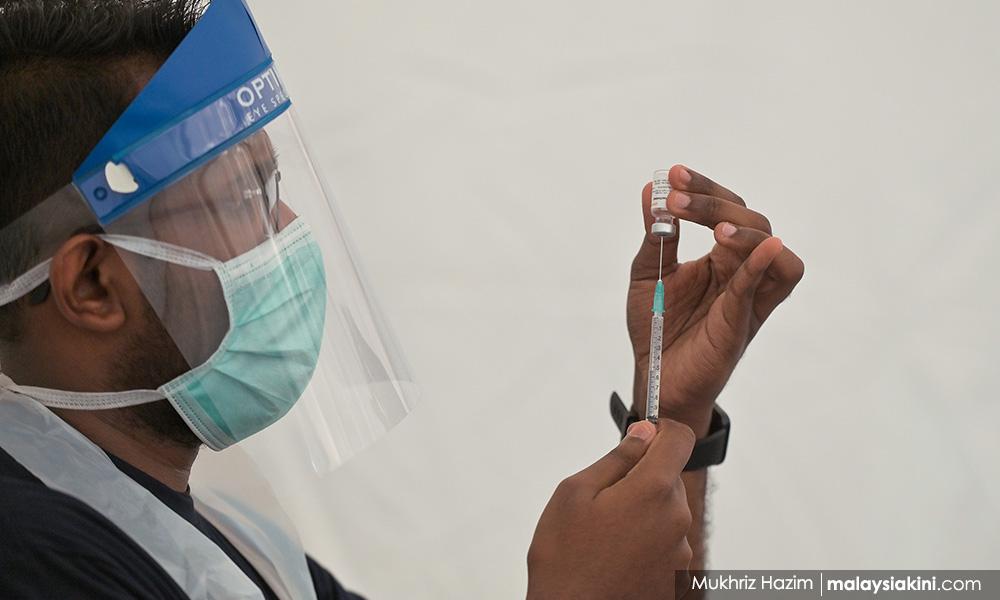There is a growing consensus among scientists that successive vaccinations Covid-19 can offer improved protection against Long Covid, according to a report.
While studies disagree on the extent of protection provided, it is a departure from earlier reports that vaccinations only provide modest protection against Long Covid and shows a clear trend that getting more shots before the first bout of Covid-19 infection reduces the risk of Long Covid.
The report published by the prominent science news magazine Scientific American yesterday cited several scientists, as well as multiple studies and meta-analyses (papers that use statistical methods to combine findings of multiple separate studies to arrive at an overall conclusion) published since 2022.
A study published in the British Medical Journal in November 2023 found that a single Covid-19 vaccine dose reduced the risk of Long Covid by 21 percent, two doses reduced it by 59 percent, while three or more doses reduced it by 73 percent.
Another study on a group of healthcare workers in Italy, which was published in July 2022 in the Journal of the American Medical Association, reported that the prevalence of Long Covid fell from 41.8 percent among unvaccinated participants to 30 percent after a single dose, 17.4 percent after two doses, and 16 percent after three doses.

Meanwhile, a Brazil-based team reported in a meta-analysis of six studies published in December 2022 that a single dose of Covid-19 vaccine reduces the risk of Long Covid by 30 percent.
In October last year, the team’s follow-up meta-analysis of 24 studies found a 36.9 percent reduction after two doses, and 68.7 percent after three doses.
The benefits of booster doses reportedly held up during periods where the Omicron Covid-19 variant is prevalent. For reasons that are still unclear, an infection with this variant is less likely to lead to Long Covid in the first place compared to earlier variants.
Both meta-analyses were published in the journal Antimicrobial Stewardship & Healthcare Epidemiology.
Long Covid refers to a wide range of symptoms that could persist for months or years following a Covid-19 infection, including brain fog, fatigue, insomnia, loss or distorted sense of smell or taste, breathing difficulties, heart palpitations, and diabetes. It is also linked to an increased risk of suicide.
Covid-19 survivors who required hospitalisation during their infection are particularly at risk, but can also affect those with mild or no symptoms.
Studies on the poorly understood phenomenon and the quest for effective treatments have been complicated by a lack of recognition of the disease and a standardised way to diagnose it. Nevertheless, it is widely reported to affect about 10 percent of Covid-19 survivors.
Long Covid likely underreported in M’sia
In Malaysia, then health minister Khairy Jamaluddin said in May 2022 that 65.1 percent of Covid-19 patients who required supplementary oxygen or intubation had Long Covid. Experts have warned that the prevalence of Long Covid in Malaysia is likely underreported.
A survey by the Universiti Malaya, meanwhile, reported in 2022 that 21.1 percent of its 732 respondents still have Long Covid symptoms more than three months after their initial Covid-19 diagnosis and 10 percent still have it after six months.
Among the respondents who are employed, about one-third said their job performance was affected. As a result, 73 percent of the affected workers reduced their work hours, 23.9 percent took leave, and three percent resigned.
According to Health Ministry data, 84.4 percent of eligible Malaysians have had at least two doses of their Covid-19 vaccination as of Jan 3, but only 50.1 percent had their third dose, and 2.5 percent had their fourth dose.
Malaysia’s vaccine stock is still based on the original strain that first emerged in Wuhan, China, in 2019. This is in contrast to countries like Singapore which have twice introduced updated formulations based on later variants.
Nevertheless, in light of the recent surge in Covid-19 cases, the ministry is encouraging Malaysians to walk in at participating healthcare facilities to get their booster shots since they can still protect against severe disease. - Mkini

No comments:
Post a Comment
Note: Only a member of this blog may post a comment.